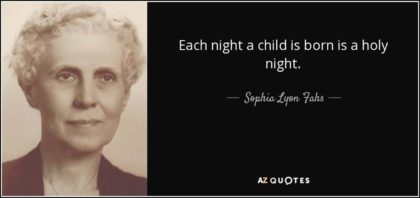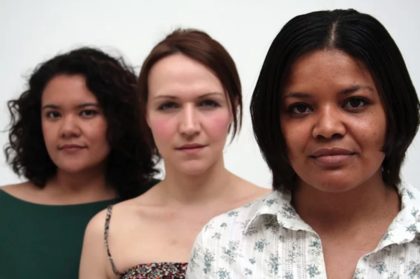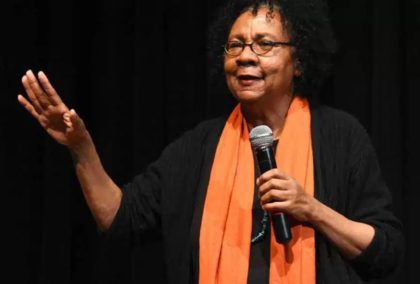#MeToo
Unitarian Universalist Congregation of Columbia
March 4, 2018
Rev. Jeff Liebmann
Call to Worship
From a Letter from Abigail Adams to John Adams, March 31 to April 5, 1776
I long to hear that you have declared an independency – and by the way, in the new Code of Laws which I suppose it will be necessary for you to make, I desire you would Remember the Ladies, and be more generous and favourable to them than your ancestors. Do not put such unlimited power into the hands of the Husbands.
Remember all Men would be tyrants if they could. If particular care and attention is not paid to  the Ladies, we are determined to foment a Rebellion, and will not hold ourselves bound by any Laws in which we have no voice, or Representation.
the Ladies, we are determined to foment a Rebellion, and will not hold ourselves bound by any Laws in which we have no voice, or Representation.
That your Sex are Naturally Tyrannical is a Truth so thoroughly established as to admit of no dispute, but such of you as wish to be happy willingly give up the harsh title of Master for the more tender and endearing one of Friend. Why then, not put it out of the power of the vicious and the Lawless to use us with cruelty and with impunity. Men of Sense in all Ages abhor those customs which treat us only as the vassals of your Sex. Regard us then as Beings placed by providence under your protection, and in imitation of the Supreme Being, make use of that power only for our happiness.
Time for All Ages
Sophia Fahs and the UU Sunday School
As a teacher and writer, Sophia Lyon Fahs helped to revolutionize American children’s religious education and played a major role in what is often called the “Unitarian renaissance” of the 1940’s.
She embraced progressive educational principles while completing a degree at Columbia University’s Teachers College in 1904, where she taught in an experimental Sunday school. In 1923, she enrolled at Union Theological Seminary in New York. Already a prominent religious educator and the author of two children’s books about missionaries, she was one of the first two women to join Union’s faculty in 1927.
 In the late 1920s, Fahs believed that “To build the beginnings of faith in God on a conception of the universe that our generation no longer regards as true.” A modern faith, she argued, must take science and modern attitudes seriously; faith, she believed, is rooted ultimately in a person’s own experiences.
In the late 1920s, Fahs believed that “To build the beginnings of faith in God on a conception of the universe that our generation no longer regards as true.” A modern faith, she argued, must take science and modern attitudes seriously; faith, she believed, is rooted ultimately in a person’s own experiences.
The American Unitarian Association had embraced graded curriculum – lessons designed for different age levels – in 1909 with its “Beacon Series.” But by the 1930s, Unitarianism was in crisis. Membership had dropped and there was widespread dissatisfaction with Unitarian Sunday school programs. New AUA President, Frederick May Eliot, brought a wave of reforms, including a call for new curriculum. Fahs was hired as Children’s Editor for the new project.
Fahs helped lead a Unitarian religious education revival, editing The New Beacon Series, for which she wrote or co-authored more than a dozen books, addressing children directly using vivid stories from around the world. Fahs dedicated her books to one goal: “We wish children to come to know God directly through original approaches of their own to the universe.” The series’ child-centered approach appealed to many young “baby boom” parents, and the curriculum’s popularity in the fellowships that sprang up across the continent was one leading factor in Unitarianism’s post-war resurgence.
Some titles, like The Church Across the Street (1947), have clear contemporary successors, like the UUA’s Neighboring Faiths curriculum. From Long Ago and Many Lands, published fifty years ago, is still in print.
Reflection
A Letter from John Adams to Abigail Adams, April 14, 1776
(with apologies for language inconsistent with 21st century norms)
As to your extraordinary Code of Laws, I cannot but laugh. We have been told that our Struggle has loosened the bands of Government every where. That Children and Apprentices were disobedient – that schools and Colledges were grown turbulent – that Indians slighted their Guardians and Negroes grew insolent to their Masters. But your Letter was the first Intimation that another Tribe more numerous and powerfull than all the rest, were grown discontented. This is rather too coarse a Compliment but you are so saucy, I wont blot it out.
Depend upon it, We know better than to repeal our Masculine systems. Altho they are in full Force, you know they are little more than Theory. We dare not exert our Power in its full Latitude. We are obliged to go fair, and softly, and in Practice you know We are the subjects. We have only the Name of Masters, and rather than give up this, which would compleatly subject Us to the Despotism of the Peticoat, I hope General Washington, and all our brave Heroes would fight. I am sure every good Politician would plot, as long as he would against Despotism, Empire, Monarchy, Aristocracy, Oligarchy, or Ochlocracy…
Sermon – #MeToo
It was the late 1980’s and I worked at the University of Pittsburgh in the Office of Institutional Research and Policy Analysis. A major national conference on women’s issues came to campus with a number of headliners speaking in a panel at an auditorium across the street. The only panelist I remember was Letty Cottin Pogrebin, a founding editor and writer for Ms. Magazine, editor of the anthology, Stories for Free Children, and consulting editor on Free to Be, You and Me, Marlo Thomas’ ground-breaking children’s book, record, and television special.
During the question and answer period, I rose and said, “In spite of my diligent efforts, my daughter and son have fallen into the traditional patterns of girl and boy behaviors.” I then asked some question about child rearing and gender stereotyping. As I stood there among a couple thousand people, Letty Cottin Pogrebin ripped into me for being a bad parent and went on to rail about the sad state of fatherhood in this country.
Needless to say, I was really pissed. I couldn’t believe that this woman had taken advantage of her position as a respected authority to humiliate me publicly. (Of course, in time I came to understand the irony of my anger and the privilege from which it derived.)
Imagine my surprise then, when some weeks later a package arrived at my door. Inside was a copy of Pogrebin’s latest book. On the flyleaf was a lengthy, handwritten note apologizing for her brusque dismissal of my question and asking my forgiveness. I had marched in Washington in support of the ERA. But, this was the first time I experienced an honest exchange as an ally offering me just the smallest taste of the discrimination women faced that I already opposed in theory.
“When I was young, women were raped on the campus of a great university and the authorities  responded by telling all the women students not to go out alone after dark or not to be out at all. Get in the house. (For women, confinement is always waiting to envelope you.) Some pranksters put up a poster announcing another remedy, that all men be excluded from campus after dark. It was an equally logical solution, but men were shocked at being asked to disappear, to lose their freedom to move and participate, all because of the violence of one man.”
responded by telling all the women students not to go out alone after dark or not to be out at all. Get in the house. (For women, confinement is always waiting to envelope you.) Some pranksters put up a poster announcing another remedy, that all men be excluded from campus after dark. It was an equally logical solution, but men were shocked at being asked to disappear, to lose their freedom to move and participate, all because of the violence of one man.”
― Rebecca Solnit
No one questions our right to hold people accountable for their actions; for holding a group of people responsible for their collective actions, for that matter. The challenge, though, comes with the assignment of responsibility.
Speaking as a cis-gendered man, we men really do need to shut up when it comes to discrimination against women, domestic violence, sexual assault, and rape. Let me clarify. When women speak about these issues, men, we should sit down and listen. When and if women want our help, they will ask for it.
In his book, The Macho Paradox: Why Some Men Hurt Women and How All Men Can Help, Jackson Katz describes an activity he conducts with men and women. “I draw a line down the middle of a chalkboard, sketching a male symbol on one side and a female symbol on the other. Then I ask just the men: ‘What steps do you guys take, on a daily basis, to prevent yourselves from being sexually assaulted?’ At first there is a kind of awkward silence as the men try to figure out if they’ve been asked a trick question. The silence gives way to a smattering of nervous laughter. Occasionally, a young guy will raise his hand and say, ‘I stay out of prison.’ This is typically followed by another moment of laughter, before someone finally raises his hand and soberly states, ‘Nothing. I don’t think about it.’”
Then I ask women the same question. What steps do you take on a daily basis to prevent yourselves from being sexually assaulted? Women throughout the audience immediately start raising their hands.
 Hold my keys as a potential weapon. Look in the back seat of the car before getting in. Carry a cell phone. Don’t go jogging at night. Lock all the windows when I sleep, even on hot summer nights. Be careful not to drink too much. Don’t put my drink down and come back to it; make sure I see it being poured. Own a big dog. Carry Mace or pepper spray. Have an unlisted phone number. Have a man’s voice on my answering machine. Park in well-lit areas. Don’t use parking garages. Don’t get on elevators with only one man, or with a group of men. Vary my route home from work. Watch what I wear. Don’t use highway rest areas. Use a home alarm system. Don’t wear headphones when jogging. Avoid forests or wooded areas, even in the daytime. Don’t take a first-floor apartment. Go out in groups. Own a firearm. Meet men on first dates in public places. Make sure to have a car or cab fare. Don’t make eye contact with men on the street. Make assertive eye contact with men on the street.
Hold my keys as a potential weapon. Look in the back seat of the car before getting in. Carry a cell phone. Don’t go jogging at night. Lock all the windows when I sleep, even on hot summer nights. Be careful not to drink too much. Don’t put my drink down and come back to it; make sure I see it being poured. Own a big dog. Carry Mace or pepper spray. Have an unlisted phone number. Have a man’s voice on my answering machine. Park in well-lit areas. Don’t use parking garages. Don’t get on elevators with only one man, or with a group of men. Vary my route home from work. Watch what I wear. Don’t use highway rest areas. Use a home alarm system. Don’t wear headphones when jogging. Avoid forests or wooded areas, even in the daytime. Don’t take a first-floor apartment. Go out in groups. Own a firearm. Meet men on first dates in public places. Make sure to have a car or cab fare. Don’t make eye contact with men on the street. Make assertive eye contact with men on the street.
The men sit in stunned silence.
When we should speak up, is in our conversations with our children. The unambiguous message to our daughters should be that you have every right that anyone else has. You have the right to control your own body; you have the right to go to school without fear of being ogled, groped, bullied, or catcalled; you have the right to pursue any interest, vocation, or lifestyle; you have the right to work without fear of harassment, discrimination, or unequal treatment; and you have the right to the same respect and dignity afforded any man.
When you ask Black parents and children about “the talk,” they generally understand your reference. In a country where Black children receive fundamentally different treatment by the police and the criminal justice system, parents must teach their children how to act when confronted by officers. Many men have their version of “the talk” with their daughters. I did. I taught Ashley the basic areas of male anatomy to kick, jab, or claw if she was ever caught in a violent situation with a boy or a man.
Our children should not be having active shooter drills in school; Black children should be able to trust police; and our daughters should not have to always have in the back of their minds how to escape wherever they are. How do we accomplish this? We ban the weapons of choice of mass murderers targeting our schools. We reform our criminal justice system and prosecute police using excessive force. And men must accept responsibility for violence against women.
“Why do men feel threatened by women?” I asked a male friend of mine. “Men are bigger,  most of the time, they can run faster, strangle better, and they have on the average a lot more money and power.”
most of the time, they can run faster, strangle better, and they have on the average a lot more money and power.”
“They’re afraid women will laugh at them,” he said. “Undercut their world view.”
Then I asked some women students in a quickie poetry seminar I was giving, “Why do women feel threatened by men?”
“They’re afraid of being killed,” they said.
— Margaret Atwood
One source of enormous pride for modern Unitarian Universalism is the development of the Our Whole Lives curriculum (formerly known as About Your Sexuality). Developed in collaboration with the United Church of Christ almost 50 years ago, OWL still today provides children, youth, and adults the best comprehensive program to dismantle stereotypes and assumptions, build self-acceptance and self-esteem, foster healthy relationships, improve decision making, and even save lives.
Since most sexual abuse begins well before puberty, preventive education, if it is to have any effect at all, should begin early in grade school, which OWL does. Ideally, information on sexual abuse should be integrated into a general curriculum of sex education. In those communities where the experiment has been tried, it has been shown conclusively that children can learn what they most need to know about sexual abuse, without becoming unduly frightened or developing generally negative sexual attitudes.
In Minneapolis, Minnesota, the Hennepin County Attorney’s office developed an education  program on sexual assault for elementary school children. The program was presented to all age groups in four different schools, some eight hundred children in all. The presentation opened with a performance by a children’s theater group, illustrating the difference between affectionate touching, and exploitative touching. The children’s responses to the skits indicated that they understood the distinction very well indeed. Following the presentation, about one child in six disclosed a sexual experience with an adult, ranging from an encounter with an exhibitionist to involvement in incest. Most of the children, both boys and girls, had not told anyone prior to the classroom discussion. In addition to basic information on sexual relations and sexual assault, children need to know that they have the right to their own bodily integrity.
program on sexual assault for elementary school children. The program was presented to all age groups in four different schools, some eight hundred children in all. The presentation opened with a performance by a children’s theater group, illustrating the difference between affectionate touching, and exploitative touching. The children’s responses to the skits indicated that they understood the distinction very well indeed. Following the presentation, about one child in six disclosed a sexual experience with an adult, ranging from an encounter with an exhibitionist to involvement in incest. Most of the children, both boys and girls, had not told anyone prior to the classroom discussion. In addition to basic information on sexual relations and sexual assault, children need to know that they have the right to their own bodily integrity.
— Judith Lewis Herman
And what about our message to our sons? If we men lay violent hands on women, verbally or emotionally abuse our partners, or otherwise control the live of women against their will, then our sons will learn to accept that behavior as normal. If we objectify women as sexual objects primarily suited for our physical gratification, our sons will adopt that behavior as standard. If we belittle the equal rights of women in the workplace, in public, in our schools, and in our homes, our sons will understand that behavior as routine and not subject to challenge.
That part of the message is self-evident once we shed ourselves of patriarchal paradigms and misogynistic viewpoints. Because the solution is not about changing women or even the overarching social structure. The toughest part of the message to our sons calls on us, as men, to change ourselves. We must recognize and accept the toxic influences of traditional masculine stereotypes on our lives. We must call out the lie that the inherent nature of the human male is violent, unemotional, and domineering. Such a construct, perhaps, worked in ancient times, but modern men must reject this caricature of maleness. If not for ourselves, we must do this for our sons.
We must also steer clear of the regressive masculine archetype that is less the strict father and more the petulant child. Too many of our leaders portray themselves as grinning boys who reject advice, shirk discipline, and ignore reasonable behavioral norms. Our duty as 21st century men is to redefine and model modern masculinity for our sons.
But, we live in a very isolating age. People easily live behind masks, inside walls, and within shells of presumed safety from harm, ridicule, and abuse. In response, we owe it to boys to craft a modern masculinity where men are proud without being arrogant; emotionally vulnerable, but still a source of strength to those around them; and confident enough that they need not bring others down in order to establish their own sense of dignity and power. And when we do fight, we should be fierce warriors for those who lack our privilege; for those without the resources or support networks to sustain a healthy mind and body; and especially for our mothers, sisters, and daughters who need our strength, who deserve our loyalty, and who blossom with our love.
Until we are willing to question many of the specifics of the male sex role, including most of the seven norms and stereotypes that psychologist Robert Levant names in a listing of its chief constituents – ‘avoiding femininity, restrictive emotionality, seeking achievement and status, self-reliance, aggression, homophobia, and nonrelational attitudes toward sexuality’ – we are going to deny men their full humanity. Feminist masculinity would have as its chief constituents integrity, self-love, emotional awareness, assertiveness, and relational skill, including the capacity to be empathic, autonomous, and connected.”
seven norms and stereotypes that psychologist Robert Levant names in a listing of its chief constituents – ‘avoiding femininity, restrictive emotionality, seeking achievement and status, self-reliance, aggression, homophobia, and nonrelational attitudes toward sexuality’ – we are going to deny men their full humanity. Feminist masculinity would have as its chief constituents integrity, self-love, emotional awareness, assertiveness, and relational skill, including the capacity to be empathic, autonomous, and connected.”
— bell hooks
Prayerful Reflection
Spirit of life and love that we know by many names, be with us as we enter an attitude of reflection, meditation, and prayer.
Self-worth, health, responsibility, inclusivity and justice. These are attributes we all wish for every person. To achieve this goal, women have fought valiantly for their equal rights. But, women can only go so far without the help of men. As the owners of gender privilege in this country, men must relinquish outdated and ineffective stereotypes, not just of women, but of themselves.
If our society wants to stop rape, then men must stop raping. If we want domestic violence to end, then men must stop using physical and mental means of intimidation against their loved ones. If we want equality in our schools, the workplace, and elsewhere, then men must get on board with legislation and institutional change to end discrimination and harassment of women.
It really is a simple matter. Change starts with each one of us. Then, we pass on our new insights and desire for change to our children. In time, students will look back in history and have difficulty understanding why we ever tolerated the current status quo. In time, no one will ever have to rise and say “Me, too” ever again.
Blessed be. Amen. Let it be so.
Closing Words
Eve Ensler once said that the tyranny of masculinity and patriarchy has killed men’s hearts, and silenced them. May we, men and women together, give voice to the new male heart of courageous kindness and resilient love.
